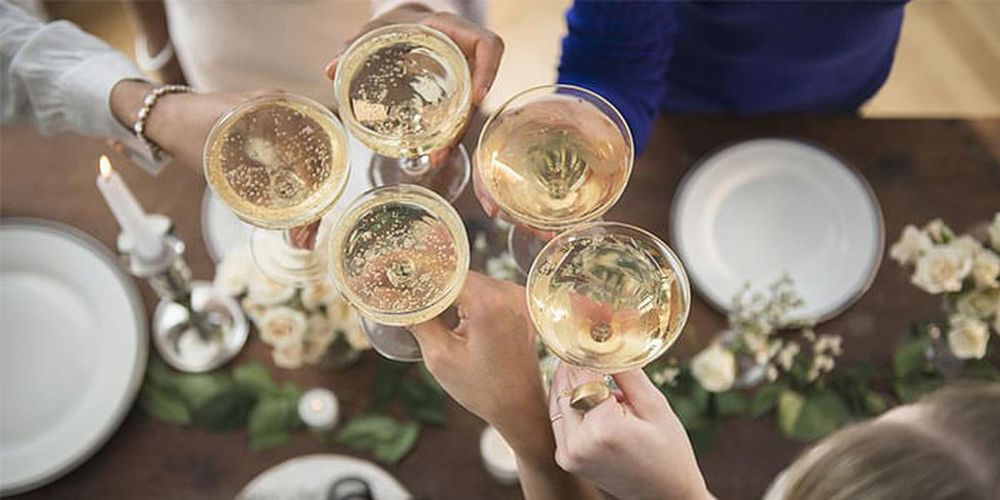Here's What Alcohol Really Does To Your Skin
It can cause inflammation, premature ageing and discolouration

You meticulously apply serums every morning and lather on creams at night, but have you ever wondered what alcohol really does to your skin?
The odd tipple here or there isn’t going to break your face - we all need to let off steam - but if you’ve ever dabbled with the idea of going teetotal, this might just swing your other leg over the fence.
Alcohol is a hepatotoxin, meaning it specifically damages the liver. This organ is intimately connected to your skin function, so if your liver is distressed, it will manifest in your skin.
Drinking, which is classified as two drinks a day, not only takes all the fluid out of your skin, it can also cause inflammation, premature ageing and discolouration.
Here’s how.
What alcohol does to your skin: Dehydration
Congeners, aka your skin’s enemy: these chemicals, produced during the fermentation process that contribute to the taste and smell of alcohol, are the main culprit for a hangover. They also dehydrate your skin like the sun’s heat sapping out moisture from sand.
"Excessive alcohol tends to cause flushing in most people and will act as a diuretic and cause dehydration,” says Dr. Justine Hextall, one of London’s leading Dermatologists.
It also hinders the production of vasopressin, the hormone that helps you reabsorb water. So when you have a drink, you’re forcing water out and making it difficult for your body to rehydrate itself.
Related article: Unique And Unusual Cocktails You Can Find In Singapore
What alcohol does to your skin: Inflammation
Think those mojitos and caipirinhas taste too good to be… well, good? That’s because they’re are.
"Excessive carbs and sugar can lead to inflammation," explains Dr Hextall, "while salt can lead to bloating". Hence the bags and dark circles under your eyes after a big night out.
What alcohol does to your skin: Acne
The high levels of salt and sugar content in your alcoholic beverage, may trigger the hormone IGF-1, which causes an over-production of oil in your skin.
Team this with spiking insulin levels that cause inflammation and you’ve got yourself a recipe for acne.
"When the skin follicles become blocked with skin cells and oil, oil starts to build up behind this blockage, resulting in the subsequent development of spots," says Dr Hextall.
Related article: Best Late Night Delivery Services In Singapore To Quell Hunger Pangs
What alcohol does to your skin: Premature ageing
When you drink alcohol, you increase chances of cell damage and increased skin ageing. "Dehydration weakens the skin barrier, which can allow environmental aggressors to cause damage," Dr Hextall clarifies.
It also decreases your liver’s store of vitamin A, which is a powerful antioxidant that helps promote cell turnover and protect your skin from things like pollution.
What alcohol does to your skin: Discolouration
Alcohol acts as a vasodilator, meaning it opens up your blood vessels. If your vessels over-dilate, they can burst, leaving you with small peripheral veins that can become permanently enlarged (you may notice these as broken red veins around your nose and on your cheeks).
On top of that, if your liver is failing to function properly, it can make your skin look dull and cause pigmentation around your eyes.
This article originally appeared on Harper's Bazaar UK.
Related article: 10 Restaurants In Singapore That Practice Sustainability For Guilt-free Dining